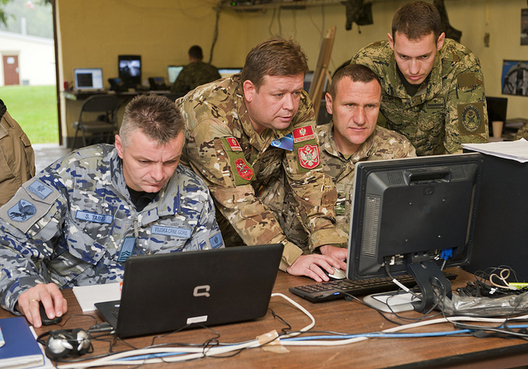 NATO’s long-standing tactical advantage on the battlefield could be at risk as cyber adversaries probe for weak points in the U.S.-led security pact’s networks, a top alliance official said.
NATO’s long-standing tactical advantage on the battlefield could be at risk as cyber adversaries probe for weak points in the U.S.-led security pact’s networks, a top alliance official said.
“This very advantage now has the potential, if we are not careful, to make us vulnerable to attack,” NATO Deputy Secretary-General Rose Gottemoeller said at the end of a cyber conference in Mons, Belgium, on Thursday….
U.S. soldiers deployed to Poland have had their smartphones hacked while operating near Russia’s bordering enclave of Kaliningrad, according to Army leaders….
The threats to NATO today range from “tweets to tanks,” but “when it comes to cyber, we are still learning,” Gottemoeller said. “We must be fast learners….”
“Yes, these are attempts to collect intelligence, intimidate NATO allies and rattle foreign troops,” said Jorge Benitez, an expert on European security with the Washington-based Atlantic Council. “The Russians are pushing the envelope through this cyber- and hybrid-warfare campaign to see how much they obtain from it, not just in terms of information and military friction, but most of all increasing political divisions and vulnerabilities for the West.”
Better coordination on cyber and hybrid attacks could be accomplished by building upon NATO’s Multinational Corps Northeast Headquarters in Szczecin, Poland, Benitez said. The corps is made up of four multinational battalions, deployed in Poland, Estonia, Latvia and Lithuania.
“NATO says it is paying a lot of attention to this, but most of it is deferred to the national level,” said Benitez, adding that lack of cohesion can result in uneven defenses among allies.
Image: A EUCOM Joint Multinational Training Exercise, Sept. 18, 2013 (photo: EUCOM)
